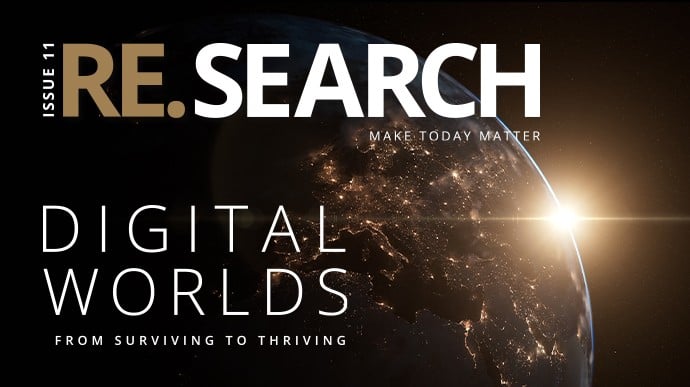The leading international scholarly journal in the field of career counseling, Journal of Vocational Behavior, published as the leading article of its first edition a research paper by Prof Kobus Maree, a B-rated researcher in the University of Pretoria's Department of Educational Psychology, Faculty of Education. The article addressed the need to rethink existing career counseling theory and praxis.
In his article, Prof Maree explains that the world of work has undergone dramatic changes following the global economic meltdown and related developments over the past few decades.
“The resultant uncertainty, insecurity, work trauma, and feelings of ‘stuckness’ experienced by many employees as the form of work changed from stability to mobility to meet the labour needs of post-corporate societies called for an innovative, adaptive, flexible response from counselors and clients alike,” he said.
This response included the rethinking of existing career counseling theory and praxis, as well as the design of new strategies, techniques, and assessment instruments (narrative instruments in particular). It also led to a move away from using objective approaches in isolation.
Significantly, this transition coincided with a shift in career counseling toward a focus on subjective aspects of clients' career-life stories.
According to Prof Maree, postmodernism is characterised by global connectedness and networking as well as by impermanence, unrestricted participation at all levels, a disregard for both repressive power structures and uncritical observance of rules, immediacy, and ample allowance for emotion, creativity, and innovation.
“The pendulum has swung strongly toward appreciation for feelings, passion, and freedom of expression, and the sense of being listened to by people at all levels and at all times. Emphasis is placed on encouraging and enabling clients to express their deepest emotions and passions more openly and thereby help them identify deep-seated strengths and motives,” he adds.
Innovative techniques are used to empower clients to reflect on their career and life stories, and reflect on these reflections to initiate self- and career construction through appropriate action and movement forward.
This study confirmed that while change will inevitably impact the career-lives of all workers and prospective workers, it should not be feared or considered insurmountable, thereby leading to paralyzed inactivity.
“Career construction counseling offers a viable and exciting strategy to deal with the effects of change intentionally, actively, and effectively,” Prof Maree points out.
Prof Maree, an honorary member of the Golden Key International Honour Society, has been invited to deliver a keynote address and present a workshop on how to get published in high impact journals at the Interdisciplinary Scientific Conference, to be held in Cracow, Poland from 15 to 19 March 2015.
The conference aims to meet the urgent contemporary demand for integrating scientists representing seemingly distant fields of knowledge into the successful education of creative, in particular mathematically fit, students.
Prof Kobus Maree
February 27, 2015

 Story
Story
The latest issue of the University of Pretoria’s award-winning RE.SEARCH magazine is available now and reflects a shift towards both a fresher design and outlook. This edition is curated under the theme ‘Digital’, and offers a glimpse into some of the fascinating research we’re doing at UP to drive digital leadership and innovation.
 Story
Story
The articles in this edition showcase work from all nine of our faculties, and underscore our University’s slogan ‘Make today matter’. RE.SEARCH has been named South Africa's top corporate publication as the winner of the 2024 SA Publication's Forum Awards. It is a runner up and finalist in the Excellence category for Communication (runner up), Design and Photography (finalist) and the...
 Story
Story
RE.SEARCH 9 is our most novel edition yet. In it, we have featured research that encourages us to think afresh, and is doing so, we’ve highlighted new ways of looking at research. You can expect to read about research that has potential and promise for the future but which is still nascent or represents an educated guess. This edition also features a range of multimedia that you can immerse...
Copyright © University of Pretoria 2025. All rights reserved.
Get Social With Us
Download the UP Mobile App